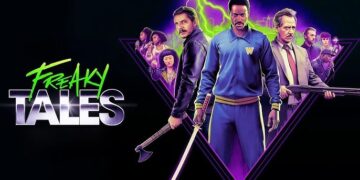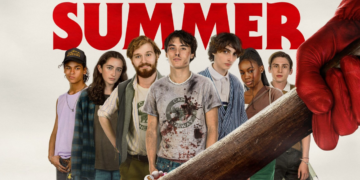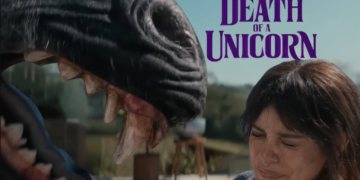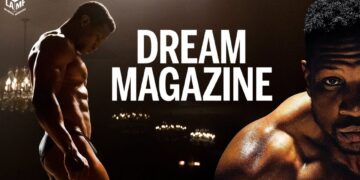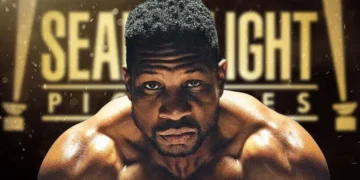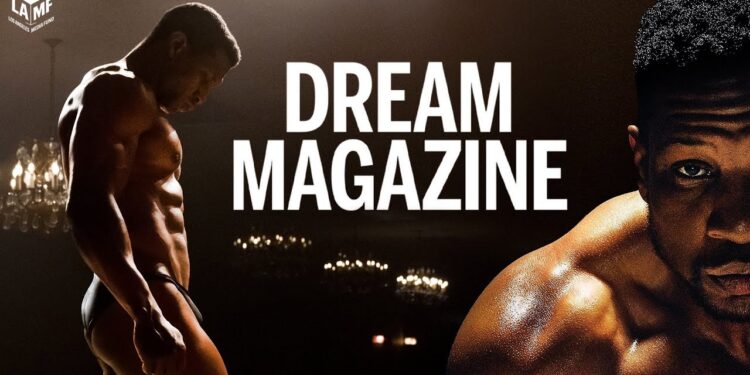In January 2024, Magazine Dreams was quietly dropped by Searchlight, with the rights reverting to the filmmakers. Jonathan Majors, once on the cusp of Hollywood superstardom, has seen his career derailed by legal troubles that have bled into the industry’s perception of him. Yet, despite the controversy, the film has found a new home with Briarcliff Entertainment, ensuring that the work of countless talented cast and crew members won’t go unseen.
Written and directed by Elijah Bynum, Magazine Dreams is an unflinching character study that follows Killian Maddox (Jonathan Majors), an aspiring bodybuilder whose relentless obsession with fame pushes him to the brink. His dream? To one day grace the cover of a prestigious bodybuilding magazine. But beneath his sculpted physique lies a man consumed by trauma—an only child who lost both parents to a murder-suicide, leaving him with only his ailing grandfather as his last tether to the world. Killian’s struggles run deep, manifesting in body dysmorphia, unchecked rage, mental instability, sexual dysfunction, and the crushing weight of financial hardship. As his pursuit of greatness spirals into self-destruction, Magazine Dreams paints a harrowing portrait of ambition turned toxic, making for a film that is as unsettling as it is mesmerizing.
Beyond his work as a caretaker and grocery store clerk, Killian Maddox dedicates every waking moment becoming the ultimate bodybuilder. His relentless training routine spirals into self-destruction—binge eating only to purge, strict meal plans dictated by calorie deceit, grueling overnight workouts that push his body beyond its limits, and a steady diet of protein shakes and pornographic content—both underscoring his lack of intimacy and social connection. His bedroom walls are a shrine to his idols, a collage of posters featuring the industry’s most revered bodybuilders, but none more important than Brad (Mike O’Hearn), his ultimate inspiration. Killian writes to Brad every day, pouring his heart into letters that remain unanswered, leaving him suspended in a one-sided devotion that only exacerbates his loneliness. “If you’re not going to write me back, just let me know. Please write or call me back. Your number one fan, Killian Maddox,” he pleads, a desperate cry for recognition from a man who has no idea he exists.

Alone in a world indifferent to his struggles, Killian’s thoughts become as heavy as the weights he lifts, each repetition a futile attempt to build a body strong enough to carry the weight of his isolation. Killian’s struggle with mental illness is undeniable—his violent outbursts, auditory hallucinations, and the relentless voices in his head, particularly his mother’s, haunt him at every turn. Harriet Sansom Harris delivers a deeply empathetic performance as Patricia Waldron, Killian’s counselor and one of the only people, aside from his grandfather, who truly listens to him. Together, they reach a sobering realization: “Sometimes, I’m afraid of my own thoughts.” He clings to self-affirmations—“I control my emotions, they don’t control me”—only to eventually succumb to a more painful admission: “I’m sick. I have a sickness.”
In one of the film’s most revealing moments, Killian records a personal ‘home video,’ passionately outlining the four S’s of bodybuilding, analyzing muscle groups, and striking classic poses in front of the camera. Yet, beneath the bravado, a haunting refrain echoes in his mind: “Nobody will like you if you’re fat.” The relentless criticisms from the bodybuilding world torment him, reinforcing his deepest insecurities—his muscles will never be big enough, his physique never quite perfect. The film boldly dissects the weight of being both mentally ill and Black in a society that refuses to see the humanity behind either. No matter how much therapy he attends, no matter how carefully he softens his tone—“I’m asking nicely, and I am not raising my voice at all”—he is still a Black man in America, and his existence alone makes him a target.
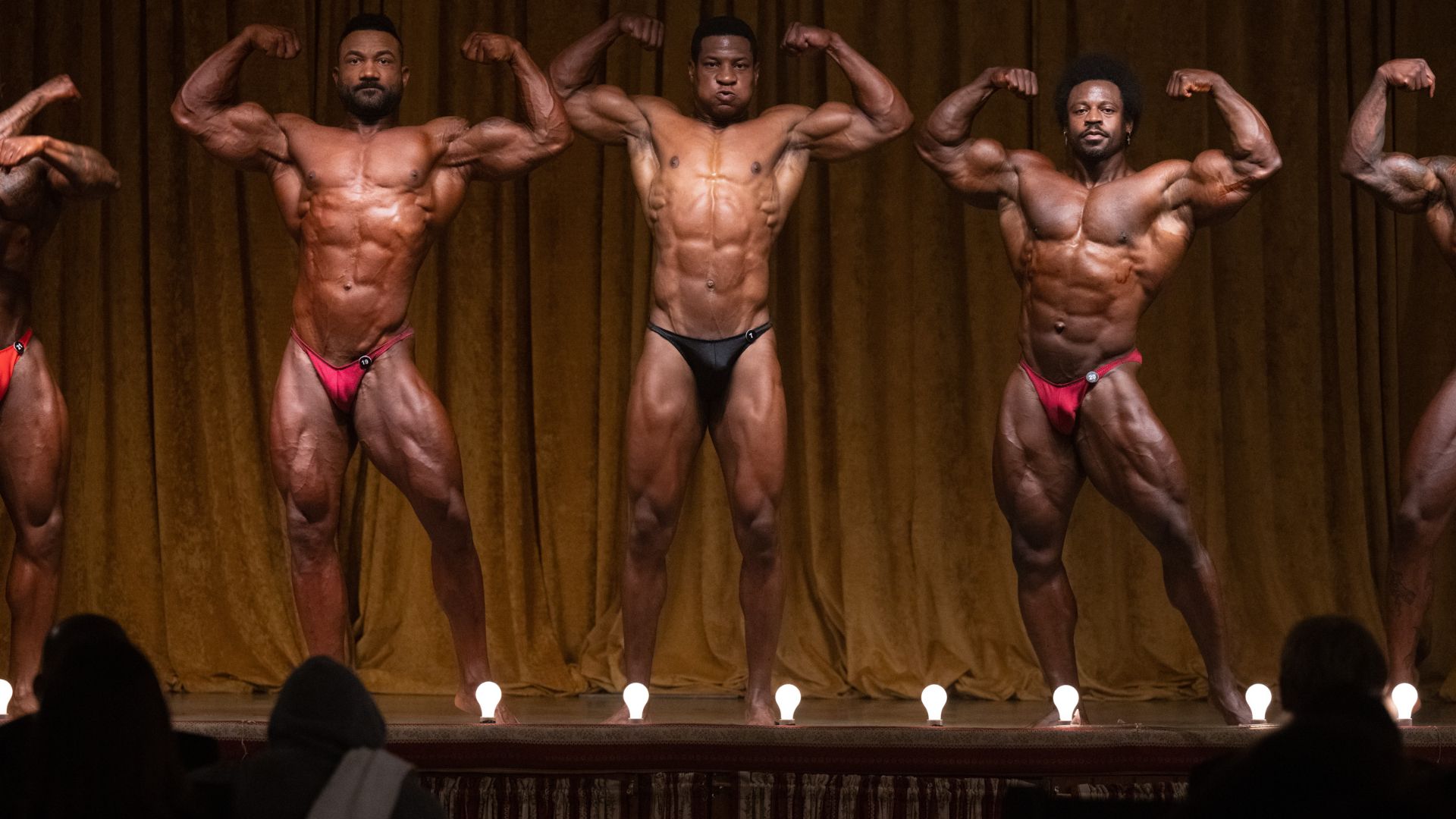
Killian’s relationships, or lack thereof, further fuel his descent. His fixation on Brad (Mike O’Hearn), the bodybuilding idol who finally responds to his letters in an unexpected twist, his tenuous crush on his kindhearted grocery store coworker Jessie (Haley Bennett), who initially pities him but later seems to develop genuine affection—both connections ultimately dissolve, leaving him abandoned once again. When Killian spends hours meticulously recording footage for the bodybuilding montage, he is met with an onslaught of online vitriol. Strangers bombard him with cruel messages, urging him to take his own life. The rejection stings deeply, forcing him to voice the quiet ache he has carried all along: “When you don’t call me back, it hurts my feelings. I just wanted to be friends.” Ultimately, he becomes the very image society has cast upon him—leaning into the violence, embracing the label of the aggressor, and succumbing to the weight of his own tragic existence.
Killian believes that the only way to prove his worth is by becoming the greatest bodybuilder alive. In his mind, “The only thing that matters in a man’s life is how he will be remembered.” His entire sense of self hinges on this pursuit—if he can just achieve bodybuilding greatness, perhaps the world will finally see him as someone worthy of love and recognition. His grandfather, the only true source of warmth in his life, reminds him of his strength: “You’ve got the heart of a champion. Pick up the weights, put ’em down. Everything else is a fairytale.”
But to Killian bodybuilding is not just a sport; it is survival. “I’m gonna place and get my pro card so they won’t walk past me. I’ve been training for this every moment of my life. No sport requires this much work and drive—no missing sleep, no missing a workout. You have to be 100% committed to be the best bodybuilder on the planet.” His last shred of sanity is sacrificed at the altar of his craft, an act of devotion familiar to any obsessed artist willing to give everything for a dream.

Magazine Dreams does what so few films dare to—deconstruct the vulnerabilities of manhood in a society that demands strength at all costs. For Killian, masculinity is tied directly to success. He believes that to be a man is to be remembered. “This is the most important thing I’ll ever do. You have to be something big or important, or nobody will remember you when you’re dead.” His ultimate vision of success? Immortality through recognition: “They’re gonna put a picture of me up on a magazine, and everyone will know Killian Maddox was here.”
Beneath its harrowing portrait of toxic masculinity and mental illness, the film subtly weaves in a scathing critique of systemic oppression. One of the most telling moments comes when Killian comments on his struggles with food insecurity: “I have to drive six miles because there’s no grocery stores in my neighborhood. No healthy food, just junk food. Do they do that on purpose?” His question lingers—Who is ‘they’? The system. The oppressors. America itself.
In the end, Magazine Dreams is not just about one man’s descent; it’s an unflinching look at a society that builds men like Killian up only to leave them behind.
Magazine Dreams is a visually arresting film, filled with bold and deliberate filmmaking choices. Its cinematography is mesmerizing, bathed in warm hues and a rich color palette that brings an almost hypnotic allure to the screen. The lighting masterfully accentuates the chiseled rigidity of Jonathan Majors’ physique, sculpting his form into something both imposing and haunting. Paired with a sweeping symphonic score that heightens the film’s relentless intensity, the result is an experience that feels both intimate and overwhelming.
At its core, Magazine Dreams is a dark and unflinching character study, showcasing what may very well be the most career-defining performance of Majors’ career. His portrayal of Killian Maddox is nothing short of mesmerizing—chilling in one scene, heartbreakingly vulnerable in the next, before snapping into something so unsettling it forces you to look away. His performance alone makes the film worth watching.
However, Magazine Dreams ultimately collapses under the weight of its own ambition. It juggles too many compelling narrative threads, each one rich enough to be explored on its own, yet together they become overbearing, making the film feel unwieldy. The runtime only exacerbates this, stretching moments to the point of exhaustion. But even with its flaws, Magazine Dreams remains an undeniable showcase of Majors’ extraordinary talent. I can’t recall a recent performance that required such immense emotional and physical heavy lifting to hold a film together.
And just as Killian Maddox proclaims: “When I close my eyes and dream, I’ll tell you what I see. From the King of China to the little boy without a friend in the white galaxy, there will come a day when the entire world knows my name. They’re gonna put my face on a magazine, and everybody will know—I was here. Signing off, Killian Maddox.”
By the time the credits roll, one thing is certain—his presence lingers, and you won’t soon forget it.



